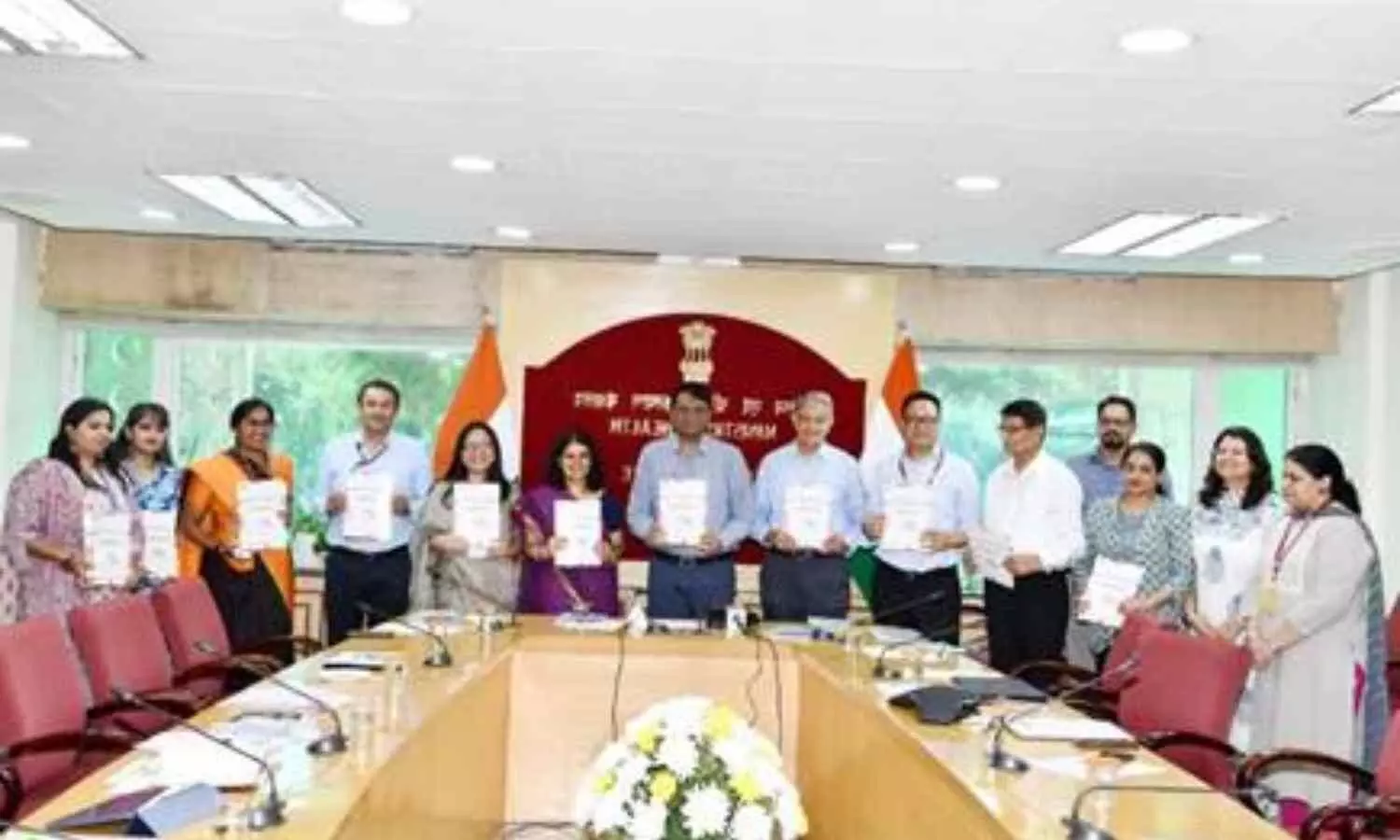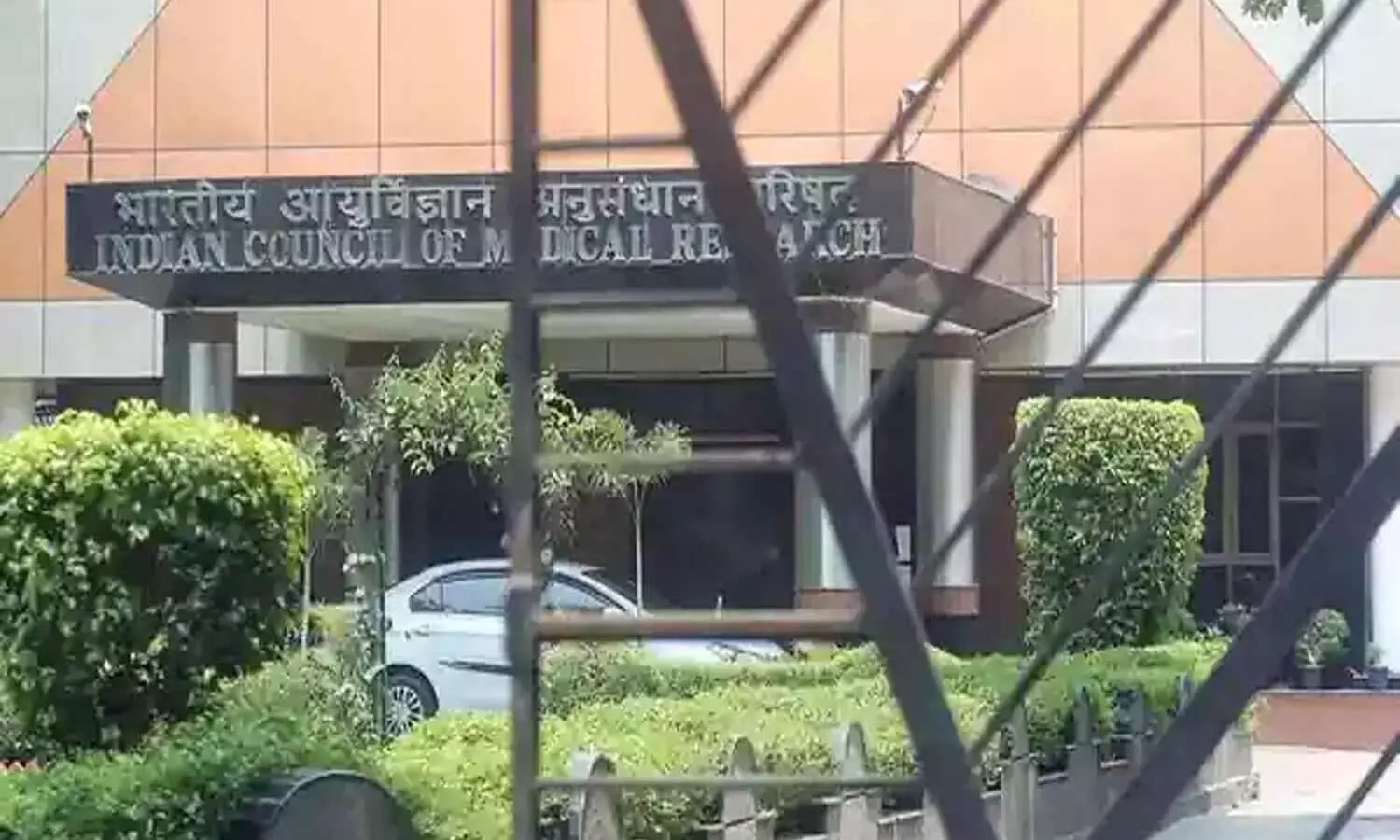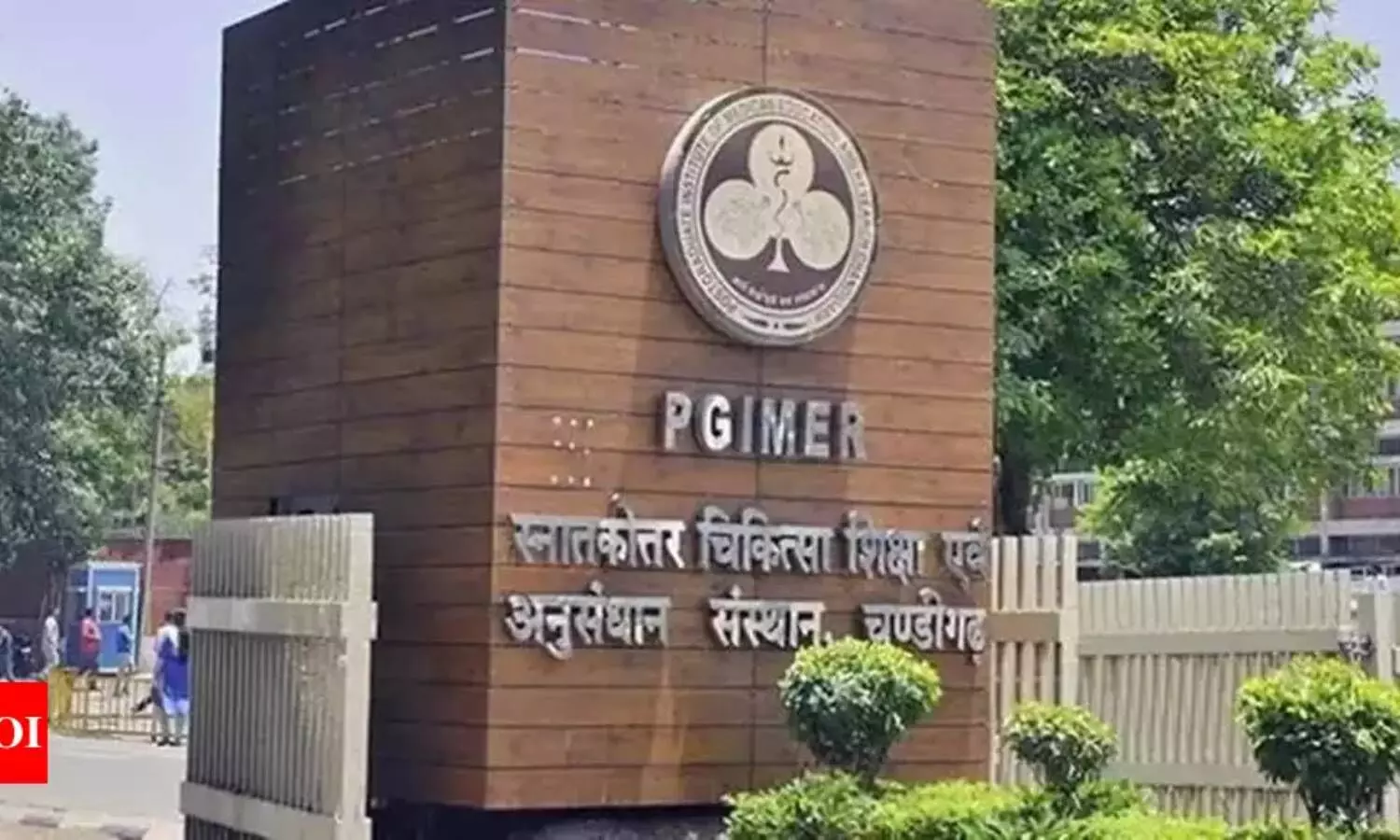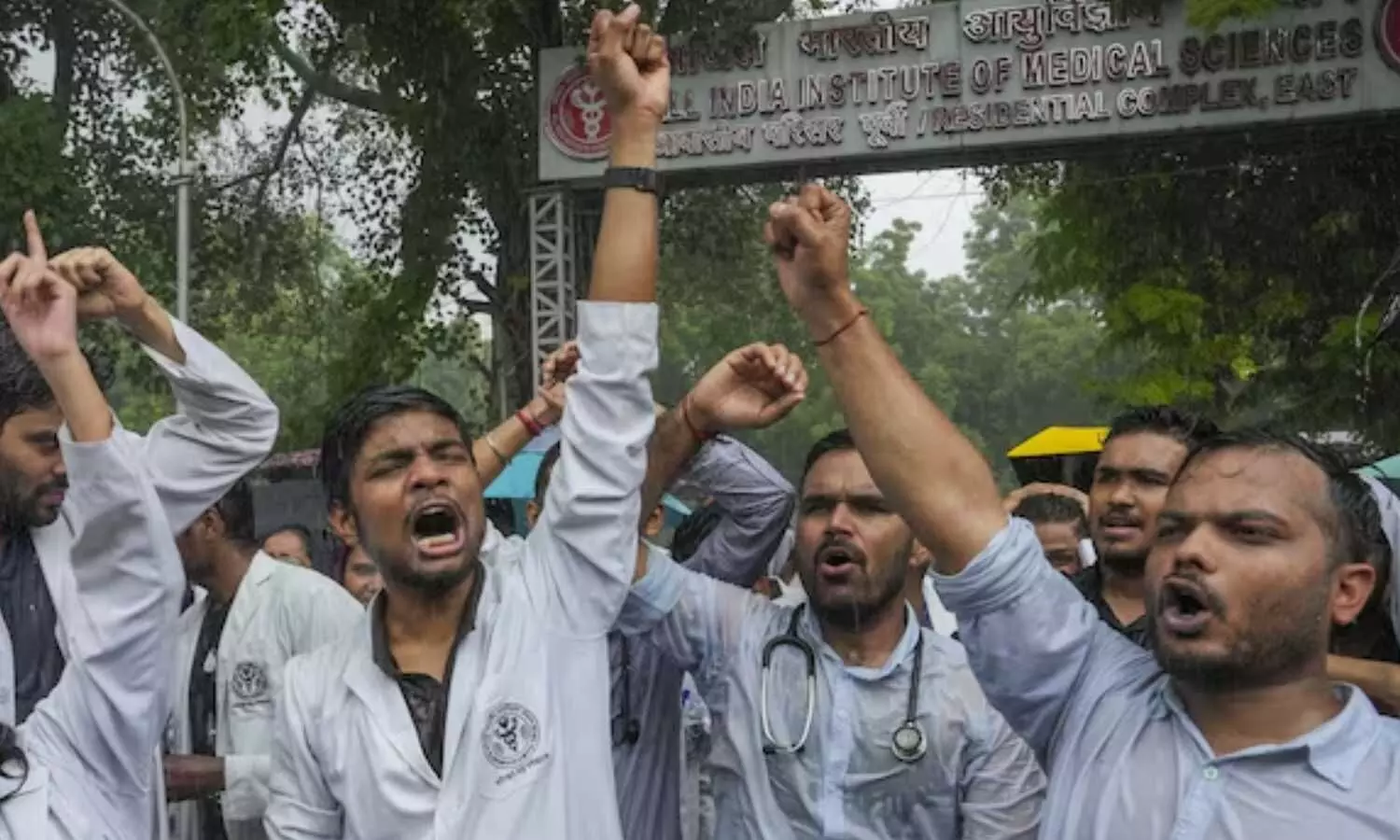Shared reading starting in infancy promoted as a positive parenting practice with lifelong benefits
Powered by WPeMatico
Powered by WPeMatico
Powered by WPeMatico
Powered by WPeMatico
Powered by WPeMatico
Powered by WPeMatico

Jammu & Kashmir- Through a notification, the J&K Board of Professional Entrance Examinations (BOPEE) has informed regarding the commencement of NEET PG counselling registrations.
The applications can be submitted by the candidates belonging to the UT of J&K / Ladakh who have qualified the National Eligibility and Entrance Test-Postgraduate (NEET PG) 2024 Exam and the candidates who are not the domiciles of J&K/ Ladakh to register themselves for 50% of UT quota seats of UT of J&K and upload the documents so that Provisional UT Merit List (PUTML) of such eligible candidates belonging to UT of J&K/ Ladakh is prepared.
As per the notification, the online registration has stated and the last date of online registration will be 02 October 2024 at Midnight. The registration should be made online through the official website of BOPEE. Meanwhile, it is to be noted that the mere submission of Application Form and Registration of Candidates should not confer any right on any candidate for admission, but it should be subjected to the fulfilment of the Eligibility Criteria and the qualification prescribed for the said course and after check and verification of their documents at the time of admission by the College/ Institution authorities if the candidate(s) is provisionally selected.
During the registration, candidates should upload the following documents-
1 MBBS degree certificate.
2 Registration with the State/ UT Medical Council/ MCI.
3 Internship Completion Certificate (upto 15-08-2024 for MD/MS/PGD) courses.
4 Domicile Certificate of UT of J&K or Ladakh as the case may be.
5 Valid Reserved Category Certificates, wherever applicable.
6 Difficult Area Certificate in pursuance of SRO 48 of 2018 dated 30-01-2018 to be certified by the concerned Director of Health Services.
7 NEET-PG Score Card 2024.
8 NMC/MCI clearance certificates for candidates possessing MBBS degrees from outside the country.
9 Valid EWS certificate.
10 *NOC from Government/Competent Authority for in-service candidates to pursue MD/MS/PGD Courses-2024.
11 For candidates belonging to UT of Ladakh, an undertaking in the form of compulsory Service Bond that he/she shall serve in the UT of Ladakh for the prescribed period immediately after completing MD/MS/PGD degrees.
12 For candidates belonging to UT of Ladakh, their ST certificate issued by the competent authority should be treated as Domicile Certificate.
13 The cut-off date for the validity of the category certificates should be the last date for Registration fixed by the BOPEE.
Meanwhile, In-service candidates who have qualified NEET-PG 2024 exam and fall in the zone of consideration will be considered subject to the issuance of “NOC” by the Competent Authority. The board may have the NOC certificate verified by such authorities if it is found expedient to do so. However, they will be allowed to participate in the Registration/ Counselling process provisionally but will be allowed to join the allotted College/Institution on production of NOC only within the stipulated dates as fixed by the Board.
It is to be noted that any candidate, who falls within the qualifying merit but has not registered himself/herself shall not be considered for counselling/allotment of a seat under any circumstances or a candidate who has registered himself/herself but failed to upload the documents or have not uploaded all documents up to the last date should also not be considered for counselling/allotment of seat.
To view the notification, click the link below
Powered by WPeMatico

New Delhi: The Union Health Ministry has recently released the revised Operational Guidelines and Training Module of Non-Alcoholic Fatty Liver Disease.
These documents are designed to improve patient care and outcomes related to NAFLD through informed, evidence-based practices.
Addressing the session, Shri Apurva Chandra, Union Health Secretary said “India has taken the lead in recognising NAFLD as a major NCD”. He said, “NAFLD is rapidly emerging as a major public health concern, closely linked with metabolic disorders such as obesity, diabetes and cardiovascular diseases. Out of 10, one to three people can have NAFLD which highlights the impact of the disease.”
Also Read:New HIV cases down by 44 per cent since 2010 in India: MoS Health Patel
Shri Chandra highlighted that “The release of revised operational guidelines and training modules reflects the importance being given by the Union Health Ministry to curb the disease.” He said these documents will provide a framework for health workers at all levels, from community health workers to medical officers.
He also emphasized the importance of continuum of care for people who have been diagnosed with NCDs and underlined the need for lifestyle modification for reducing the prevalence of NAFLD.
Speaking on the occasion, Smt. Punya Salila Srivastava, Officer on Special Duty, Union Health Ministry said that “These guidelines need to reach the grassroot level workers so that the disease is detected early and the burden of NAFLD is reduced.” She said that the release of training module is a significant addition to India’s efforts to build capacities amongst Healthcare professionals to tackle the rising burden of NCDs in India.
Dr S K Sarin, Director, Institute of Liver and Biliary Sciences (ILBS) said that the release of the two documents is a momentous step whose results will be reflected in the next few years. He noted that many non-communicable diseases (NCDs) such as diabetes, heart disease, and cancer are linked to liver health, underscoring the importance of maintaining a healthy liver.
Non-communicable diseases (NCDs) are accounting for more than 66% of death in the country. NCDs are strongly associated and causally linked with major behaviour risk factors such as tobacco use (smoking & smokeless), alcohol use, poor dietary habits, insufficient physical activity, and air pollution.
Non-Alcoholic Fatty Liver Diseases (NAFLD) is emerging as an important cause of liver disease in India. It could be assuming a silent epidemic with community prevalence ranging from 9% to 32%, depending on age, gender, area of residence and socioeconomic status. In other words, we are saying that out of 10 persons 1 to 3 persons will be having Fatty liver or related disease.
India contributes high numbers for NCDs globally and one of the core causes of metabolic diseases is in liver. Realizing the growing burden and urgent need to address it, India became the first country to integrate the NAFLD in the National Programme for Prevention and Control of NCDs in 2021.
Considering the recent evidence-based interventions in the field of NAFLD, there was a dire need to revise the guidelines with updated information for prevention, control and management to equip the medical care providers and help in prevention and control of NAFLD.
The guidelines focus on health promotion and early detection which are important for ensuring that patients with NAFLD receive timely and appropriate care. It also advocates for a multidisciplinary approach, integrating the efforts of healthcare providers from various discipline to offer a holistic care to individual affected by NAFLD.
The effective management of NAFLD requires not only a sound understanding of the disease condition but also a capacity to implement evidence-based interventions at all level of healthcare. The Training Module for NAFLD is developed to complement Operational Guidelines and help in building capacity of healthcare professionals with knowledge and skills necessary to identify, manage, prevent NAFLD particularly at primary level.
The module covers a wide range of topic including epidemiology, risk factors, screening, diagnostic protocol and standardized treatment guidelines. It also reinforces the importance of early detection, patient education, lifestyle modification and integrated care strategies to improve health outcomes.
Shri Jaideep Kumar Mishra, Addl. Secy and Financial Adviser, Health Ministry; Smt. L S Changsan, Addl. Secy, Health Ministry; Smt. Latha Ganpathy, Joint Secretary, Health Ministry and senior officers from the Union Health Ministry were present in the meeting. Representatives from all 36 States/UTs, development partners and experts from WHO, ILBS, AIIMS, CMC Vellore, JIPMER, SGPGIMS, PGIMER and RML Hospital also joined the meeting virtually.
Also Read:DHR’s 100-Day Program: Transformative steps taken for Healthcare Innovation, Pandemic Preparedness
Powered by WPeMatico

New Delhi- Through a recent notice, the Indian Council of Medical Research (ICMR), New Delhi has called for Research Proposals for only North Eastern Region Fellowships/Grants for the Year 2024-2025 under the ”Human Resource
Development (IHRD) Scheme for Health Research” of the Department of Health Research (MoHFW)
in the emerging fields of Medical/Clinical/Health Sciences.
The Human Resource Development
Scheme aims to provide opportunities for advanced training 111 biomedical and
health research for creating a pool of trained & experienced human
resources in India.
The following Component of the
Scheme Online research proposals are invited for the year 2024-2: from eligible applicants from North
Eastern States (Arunachal Pradesh, Assam, Mampt:1–, Meghalaya,
Mizoram, Nagaland, Sikkim, Tripura):
Applications may be submitted
online through the e-PMS web-portal of DHR. Details of the eligibility,
terms & conditions and guidelines of the programme are available on DHR website
“Last date of
receipt of full-length research proposals: 04.10.2024 till 5:00 pm,” the ICMR notice gave the deadline for submitting the research proposals
Also, the applicants for
workshop funding grants in biomedical research & International Travel Grants are invited
on DHR’s ePMS portal on rolling basis. Candidates from North Eastern states are encouraged
to apply for these grants.
All projects involving research on human
beings/animals must be cleared by the Human Ethics
Committee/ Animal Ethics Committee of the respective institute. All Fellowships are subjected approval by Technical
Evaluation Committee / Project Approval Committee
and availability of funds under the Scheme, the notice added.
Also Read:JIPMER Invites Application For Research Proposals To IEC Observational Studies June 2024
To view the notice, click the link below
Powered by WPeMatico

Chandigarh: The 130th standing Finance Committee (SFC) meeting of the Postgraduate Institute of Medical Education and Research (PGIMER) Chandigarh has been rescheduled to October 6, 2024, due to Health Minister JP Nadda’s attendance at the nursing institute NINE’s convocation.
The specific time and venue for the meeting have yet to be finalized.
The upcoming SFC is scheduled to address important issues, including manpower allocation for doctors’ security. This issue has gained urgency in light of recent assaults on healthcare professionals, highlighting the need for enhanced protective measures. It’s worth noting that the 129th SFC meeting was delayed and only took place after being postponed five times.
 Also Read:Kolkata doctor death case: AIIMS Doctors demand Central Protection Act, Strike continues
Also Read:Kolkata doctor death case: AIIMS Doctors demand Central Protection Act, Strike continues
This discussion arises in the aftermath of the tragic rape and murder of a 31-year-old doctor at RG Kar Medical College in Kolkata on August 9, which has highlighted the urgent need for enhanced safety measures within medical institutions. In response to this incident, resident doctors at PGIMER protested for 11 days, calling for a safer workplace and justice for the victim.
According to Hindustan Times, the SFC meeting, chaired by the secretary of the Union Ministry of Health and Family Welfare, includes 10 members, including director general of health services, an additional secretary and financial advisor, a member of Parliament Chandigarh, and Panjab University vice-chancellor. PGI director Dr Vivek Lal serves as the committee member secretary.
Additionally, the upcoming State Finance Commission (SFC) meeting will present several important agendas for approval, aimed at enhancing healthcare infrastructure. Key proposals include increasing manpower across various departments, recruiting additional faculty for the newly established Advanced Neurosciences Centre and Mother and Child Care, and upgrading the hospital information system to improve patient management and services. These initiatives reflect a commitment to strengthening healthcare capabilities and ensuring better outcomes for patients.
Also Read: Kolkata doctor death case: PGIMS resident doctors to continue strike over workplace safety
Powered by WPeMatico

Princeton: Bristol Myers Squibb has announced that the U.S. Food and Drug Administration (FDA) has approved COBENFY (xanomeline and trospium chloride), an oral medication for the treatment of schizophrenia in adults. COBENFY represents the first new class of medicine in several decades and introduces a fundamentally new approach to treating schizophrenia by selectively targeting M 1 and M 4 receptors in the brain without blocking D 2 receptors.
“The landmark approval of our first-in-class treatment for schizophrenia marks an important milestone for the community, where after more than 30 years, there is now an entirely new pharmacological approach for schizophrenia — one that has the potential to change the treatment paradigm,” said Chris Boerner, PhD , board chair and chief executive officer at Bristol Myers Squibb. “As we reenter the field of neuropsychiatry, we are dedicated to changing the conversation around serious mental illness, beginning with today’s approval in schizophrenia.”
Schizophrenia is a persistent and often disabling mental illness affecting how a person thinks, feels and behaves. It is estimated to impact approximately 2.8 million people in the United States. Symptoms typically first appear in early adulthood and present differently in each person, making symptoms difficult to diagnose and manage. While the current standard of care can be effective in managing symptoms of schizophrenia, up to 60% of people experience inadequate improvement in symptoms or intolerable side effects during therapy.
“For people living with schizophrenia, it’s often difficult to find a treatment that works for them. Having a variety of treatment options gives patients and healthcare providers the tools to help manage this serious condition,” said Gordon Lavigne, chief executive officer of the Schizophrenia & Psychosis Action Alliance. “People living with schizophrenia want and deserve more. The approval provides a new option as people with schizophrenia move forward with proper support to rebuild their lives.”
The FDA approval of COBENFY is supported by data from the EMERGENT clinical program, which includes three placebo-controlled efficacy and safety trials and two open-label trials evaluating the long-term safety and tolerability of COBENFY for up to one year. In the Phase 3 EMERGENT-2 and EMERGENT-3 trials, COBENFY met its primary endpoint, demonstrating statistically significant reductions of schizophrenia symptoms compared to placebo, as measured by the Positive and Negative Syndrome Scale (PANSS) total score change from baseline to week five. COBENFY demonstrated a 9.6-point reduction (-21.2 COBENFY vs. -11.6 placebo, p<0.0001) and an 8.4-point reduction (-20.6 COBENFY vs. -12.2 placebo; p<0.0001) in PANSS total score compared to placebo at week five in EMERGENT-2 and EMERGENT-3, respectively. In EMERGENT-2, COBENFY demonstrated a statistically significant improvement in illness from baseline to week five, as measured by the Clinical Global Impression-Severity (CGI-S) score, a secondary endpoint in the trial.
The safety and tolerability profile of COBENFY has been established across acute and long-term trials.
“Due to its heterogeneous nature, schizophrenia is not a one-size-fits-all condition, and people often find themselves in a cycle of discontinuing and switching therapies,” said Rishi Kakar, MD, chief scientific officer and medical director at Segal Trials and investigator in the EMERGENT program. “The approval of COBENFY is a transformative moment in the treatment of schizophrenia because, historically, medicines approved to treat schizophrenia have relied on the same primary pathways in the brain. By leveraging a novel pathway, COBENFY offers a new option to manage this challenging condition.”
The Company has also announced the launch of COBENFY Cares, a program designed to support patients who have been prescribed COBENFY. Patients will be able to enroll in the COBENFY Cares program in late October corresponding with product availability.
Read also: Bristol Myers Squibb India Gets CDSCO Panel Nod to Study anticancer drug Mezigdomide
Powered by WPeMatico
